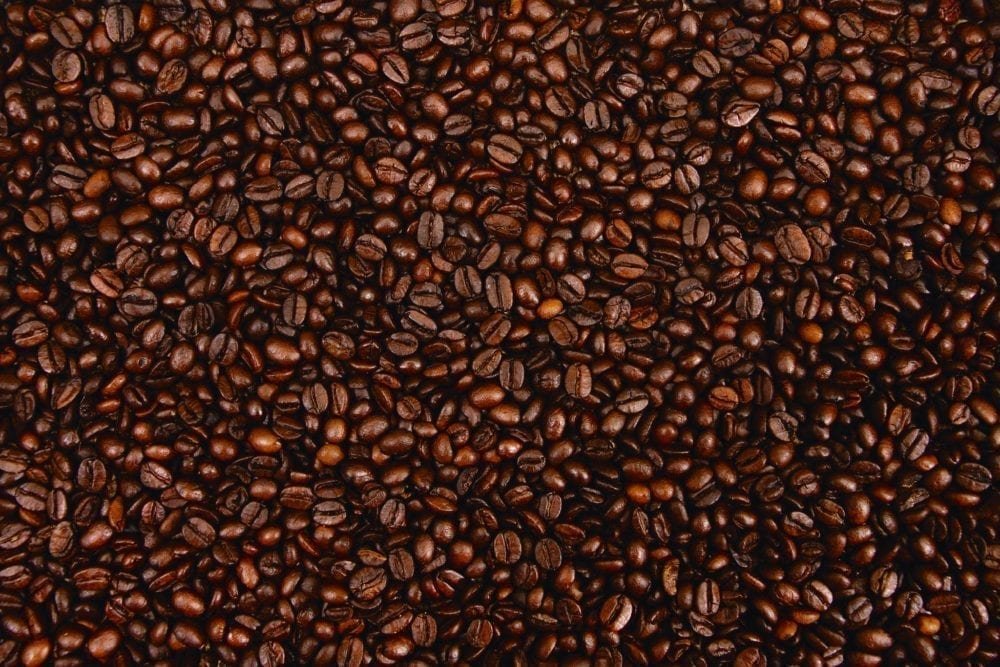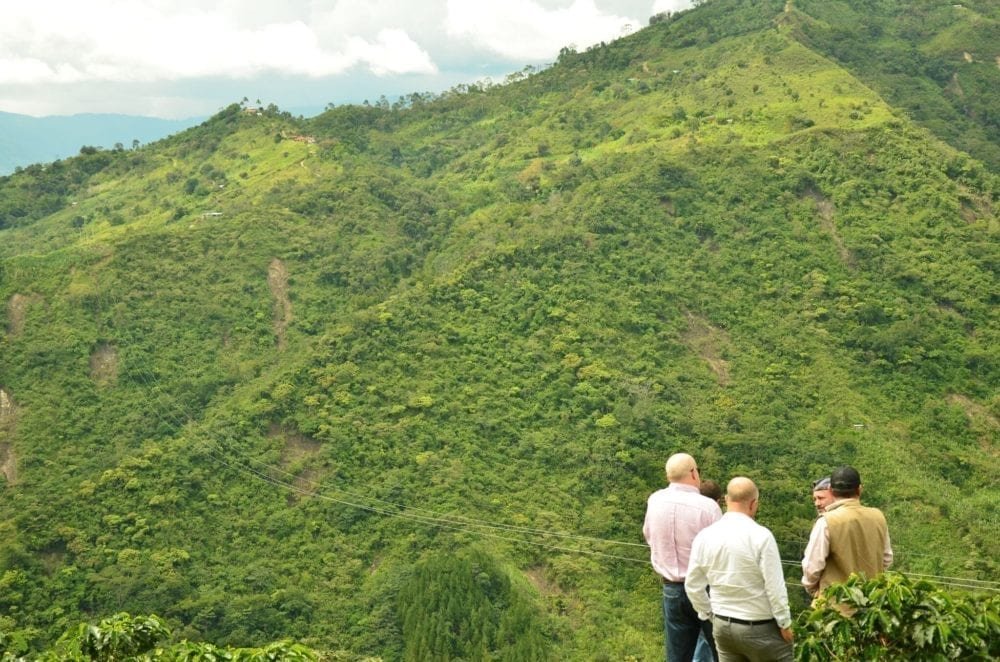This article first appeared in our winter ’18 issue of MyGreenPod Magazine, The Resolution Revolution. Click here to subscribe to our digital edition and get each issue delivered straight to your inbox
Our caffeine habit generated £7.9bn in 2015, yet the world’s biggest producer of speciality coffee – the type that attracts the highest prices – is struggling to lift her coffee farm workers out of poverty.
In 2015 Colombia produced over 1.8bn lbs – almost 10% – of the world’s coffee. A kilo of coffee yields around 120 cups in a coffee shop; at £3.00 a cup that’s £360 a kilo. ‘I felt sure that there must be enough money to go around’, says Gary Golden, CEO of Not 1 Bean Ltd, a British-based company with a permanent, long-standing presence in Colombia. ‘Then I found out that the Colombian farmers I spoke to were being paid less than £2 a kilo!’
Economies of scale
The reason is that over 88% of Colombia’s 1,849,208,117 lbs of exported coffee gets shipped away to be roasted overseas, and it’s only after roasting that these huge profits are realised. Large buyers order container-loads of these green unroasted beans at a time, and sell 132lb bags in bulk to coffee roasters in the US, Canada and Europe.
‘I found that virtually all the profit in the coffee chain was disappearing overseas to far richer countries’, Gary explains, ‘leaving the farmers who had most at stake in the whole process often in abject poverty’.
The family farmer, who makes up 95% of the farmers in Colombia, doesn’t have much say when buyers negotiate this type of volume. He has no choice but to watch the jobs and revenue from roasting disappear over the horizon on container ships, along with his coffee.
‘In the UK one company alone is stepping up production to roast 60,000 tonnes of coffee a year, yet this poverty exists, in part, as a direct result of coffee roasting jobs and revenue being denied to farm workers within the very country the coffee was originally grown’, Gary tells us. ‘It’s as if the world’s decided that workers in developing nations are only good enough to work in the fields. Can you imagine the economic benefits of roasting 60,000 tonnes of coffee in a developing country?’
That 60,000 tonnes is just one company; multiply it by the thousands of coffee shops that buy their coffee green and roast it themselves, or the shops and supermarkets buying from the multitude of other companies who roast in the UK, and you get an idea of the scale of this. ‘This whole business model is unethical’, Gary says. ‘We couldn’t ignore it – and we won’t ignore it.’
A new model
Since moving to Colombia to teach English as a foreign language, Gary has found only a handful of farmers with the financial means to roast their own coffee, let alone develop the international markets in which to sell it.
‘We decided we’d do whatever we could to address this imbalance by helping farm workers to roast their own coffee, and then deliver the end product directly to international markets’, Gary explains.
One farmer Gary works with produces around 70 tonnes of high-grade speciality coffee every year. He already has coffee roasting equipment, but has committed to roasting coffee from farmers in the same region who don’t. He now gives Not 1 Bean Ltd 140 tonnes each year, and he’s more than happy to install extra roasters to bring in crops from further afield.
‘We want to encourage this forming of co-operatives’, Gary tells us. ‘Who should this extra revenue benefit if not the family that produces the crop? Making larger amounts available in this way should also convince the bigger companies that it’s worth their while to look at their current buying practices.’
Off-the-shelf coffee
Not one bean of Gary’s coffee is roasted outside developing countries, hence the company’s name. This way, farmers receive 100% of the roasting income, which represents 90% of the profit in the coffee supply chain.
‘Our coffee is flown the very next day after roasting, often directly to the consumer, so it’s received at its freshest. Our latest speciality coffees were in customers’ hands five days after being roasted in Colombia. Prior to that they were being dried on the farm; coffee farmers in Colombia don’t know what a warehouse is.’ In contrast, off-the-shelf speciality coffees often reach the trolley months after being roasted, losing most of the aromas and flavour the customer’s paying for.
‘There isn’t even a price differential in this method as we often cut out some people in the chain who hoover up the profits’, Gary tells us. ‘We’re not popular, but frankly that just tells us that what we’re doing is right.’
Some companies do reinvest in coffee-growing nations and communities, but much more could and should be done. ‘I’m waiting for the first of the top 10 UK supermarkets to show me one of their speciality coffees is roasted in a developing country’, Gary says. ‘I could be wrong and they’re just well hidden, but I doubt it. These companies would surely be promoting this as the perfect example to back up claims of ethical buying practices.’
Gary invariably gets a standard reply from UK shops: their coffees are all bought under the Fairtrade system. ‘It’s a step in the right direction’, says Gary, ‘but Fairtrade doesn’t specify whether 60,000 tonnes a year have been roasted in Burundi or Basildon – and it certainly can’t force companies to roast in developing countries. Only coffee drinkers can do that.’
 Play Video about This Rock Might Just Save The World
Play Video about This Rock Might Just Save The World Play Video about Play 2 hours of rock
Play Video about Play 2 hours of rock Play Video about Play 2 hours of brook
Play Video about Play 2 hours of brook Play Video about Play 2 hours of sheep
Play Video about Play 2 hours of sheep













































